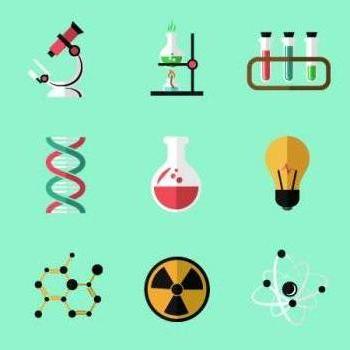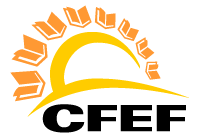
FIND IT FUND IT FLORIDA
Ag-Xcelerate: Hands-On Agriculture for Student Achievement

- School:
- Freeport High School
- Subject:
- STEM Education
- Teacher:
- Julia Terrell
- Bruce Bates
- Students Impacted:
- 190
- Grade:
- 9-12
- Date:
- October 7, 2025
Investor
Thank you to the following investor for funding this grant.
The St. Joe Community Foundation - $2,000.00
Goal
The goal of this project is to enhance student achievement through hands-on, inquiry-based agricultural learning experiences. Currently, students have limited access to the hand tools and materials necessary to fully engage in applied agricultural practices. Without adequate supplies such as soil, pots, clippers, and hydroponic materials, learning is restricted to theory rather than practice, limiting student proficiency in both agricultural skills and broader problem-solving abilities.
This project will provide the resources and materials needed for students to maintain real-world agricultural systems, from traditional gardening to growing beds, and then to the implementation of various hydroponic setups. These experiences will foster critical thinking, collaboration, and innovation while reinforcing key concepts in science, technology, engineering, and mathematics.
By engaging almost 200 students—including traditional learners, those often in self-contained classrooms, and students with exceptional abilities —the project ensures equitable access to meaningful, hands-on opportunities that connect classroom knowledge to practical applications. These experiences will lead to measurable learning gains by ensuring students both earn a year of science credit by successfully passing Agriscience Foundations 1 and earn an acceleration point by successfully passing at least one industry standard certification that benefits the entire school community because acceleration points is part of the school grade calculation. Last year, there were 5 classes with one teacher in Agriscience Foundations 1 (100 students). All students earned science credit, and 95 of the 100 students earned an acceleration point. This year there are almost double the number of students enrolled (almost 200 students in 8 courses with two instructors. This grant will be used to expand the available materials for students to use to fully participate in agriculture (both the vegetable and nursery industry).
Ultimately, this project empowers students to grow both knowledge and confidence, equipping them with skills that will support lifelong learning and future career readiness.
Category
Learning Aids - Sunshine state book sets, robotics kits, puzzle boards, science models, engineering supplies, etc.
What will be done with my students
During the 2025–26 school year, my students will take ownership of their learning by engaging in hands-on agricultural projects that connect classroom concepts to real-world applications. Rather than only reading about plants and growing systems, they will be the ones planting, managing, and problem-solving.
During the Fall, my students will begin by learning how to safely use tools and materials such as clippers, soil, and pots. They will pot starter plants while applying lessons on plant biology and growth. Then in the winter, students will manage their plants and move them to growing beds or keep them in greenhouses depending on their selection of crops. Students will also assemble hydroponic systems and evaluate how to manage and get the greatest yield from the various systems. Many of the hydroponic systems need aids to support plants and crops to maximize yields. This grant provides the materials for students to support their plants as they mature (tomato cages, cucumber trellises, and plant props). Additional planting pots will also be purchased using funding from this grant to allow students to manage larger more seasonal plants that need the greenhouse during various times in the year. Real, live plants that students need to ID for their industry certification will also be purchased and managed by students. This will aid in their ability to recognize these plants when they earn their acceleration points. This stage allows students to see their ideas come to life while practicing collaboration, critical thinking, and applied STEM skills.
In the spring, students will maintain and monitor the systems they created. They will share results with peers and reflect on how their work directly impacted the success of the garden. Produce grown during this time will benefit the school community by being donated to the school cafeteria, reinforcing the value of their contributions. By the end of the school year, my students will not only understand agricultural concepts at a deeper level, but they will also see how their own creativity and hard work made a lasting impact on the school community.
Benefits to my students
This project will give my students the opportunity to learn by doing. Instead of simply hearing about plant growth or sustainable agriculture, they will actively plant and maintain systems that they help design themselves. This shift from passive learning to active engagement will support greater achievement across academic levels, allowing every student—from self-contained learners to traditional students—to access the content in meaningful ways.
Students will develop proficiency in agricultural concepts such as plant biology, soil science, hydroponics, and irrigation. This will be measured by students earning industry certifications. Our goal is to surpass the 95% success rate in acceleration points earned last year in Ag Foundations 1.
Students will strengthen STEM skills through measuring, recording, and analyzing growth and harvest data. Students will build 21st-century skills like problem-solving, teamwork, and communication as they work in groups to design and implement projects.
All learners, regardless of ability level, will have access to hands-on experiences that reinforce state standards while also building confidence and ownership of learning. By providing students with the tools and resources to fully participate in agricultural projects, this initiative directly supports the goal of increasing student achievement through applied, real-world learning. As students take ownership of their work, they will see how their efforts lead to tangible outcomes—healthier plants, more efficient irrigation, higher yields, and a stronger garden for the school community. These experiences will not only prepare students for future agricultural and STEM opportunities but also help the school achieve acceleration points that benefit the entire campus.
Specific measurements and evaluation of the project will be the following:
Learning Gains: Student progress will be assessed through pre- and post-competency exams to document mastery of curriculum.
Project Outcomes: Success will be measured by the completion of student-designed garden improvements, functioning hydroponic systems, and data collected on plant growth and harvest yields.
Schoolwide Impact: Evidence of acceleration point achievement and community benefit from the school garden donations to the school cafeteria will demonstrate the broader success of the project.
Through these measures, student growth will be clearly documented, showing how hands-on agricultural learning translated into both academic achievement and real-world problem-solving skills.
Budget Narrative
The requested budget of $1,500 will provide essential tools, materials, and supplies that allow students to fully participate in hands-on agricultural learning experiences throughout the 2025–26 school year. These resources directly support the project goal of increasing student achievement by giving students the opportunity to plant, grow, and maintain sustainable garden and hydroponic systems.
Traditional Gardening Materials (Lowe’s)
A variety of garden structures and tools will be purchased to expand and maintain outdoor growing spaces. Items such as shepherd’s hooks, planters, trellises, tomato cages, metal stakes, and plant props will give students the ability to support a wide range of plants while learning proper horticultural techniques. Miracle-Gro soil, seeds, and plant tie tape will allow students to explore plant growth from seed to harvest. Hand pruners will ensure that students can safely and effectively learn essential plant care practices. These items will be used daily in classroom labs and garden projects, fostering both skill development and academic application of plant biology concepts.
Irrigation and Infrastructure
PEX fittings and connectors will be used by students to repair and improve irrigation systems. By applying engineering and problem-solving skills, students will gain real-world experience in designing and maintaining water delivery systems critical to plant success. Sun shade sails will provide protection from excessive heat, extending the growing season and allowing students to monitor the impact of environmental factors on plant growth.
Hydroponics Systems (Amazon & Tower Garden)
To expand learning into modern agricultural practices, hydroponic materials such as Rockwool cubes, net cups, and hydroponic fertilizers will be purchased. These supplies will enable students to experiment with soilless plant production, compare traditional versus hydroponic methods, and collect data on efficiency and growth. These activities align directly with STEM standards and provide innovative, hands-on applications of science and engineering.
Certification Testing Materials (Blue Coastal Nursery)
Required plants for agricultural certification testing will be purchased to ensure that students can practice and demonstrate proficiency with the plant identification skills necessary for their assessments. This directly supports student achievement by preparing learners for industry-recognized certification.
Evaluation of Budget Impact
The effectiveness of these purchases will be evaluated by measuring student growth in agricultural knowledge and skills through classroom assessments, project completion, and certification pass rates. Additional measures include the functionality of irrigation and hydroponic systems built by students, the health and yield of garden crops, and evidence of increased student engagement through participation and project reflections.
This budget ensures that all students, regardless of ability level, have the tools and resources needed to achieve success in applied agricultural learning.
Items
| # | Item | Cost |
|---|---|---|
| 1 | Support systems for plants (sheperd's hooks, stakes, cages, trellis, etc) | $440.72 |
| 2 | Supplies for hydroponic growing systems (rockwool, net cups, fertilizer, etc) | $752.69 |
| 3 | Irrigation fittings | $37.38 |
| 4 | Supplies to planting plants (pots, soil, plant stands, seeds, live plants, etc.) | $487.41 |
| 5 | Hand Tools | $149.80 |
| 6 | Sun Shade Sails | $132.00 |
| Total: | $2,000.00 |





Share
Please share this page to help in fulfilling this grant.
Email to a Friend